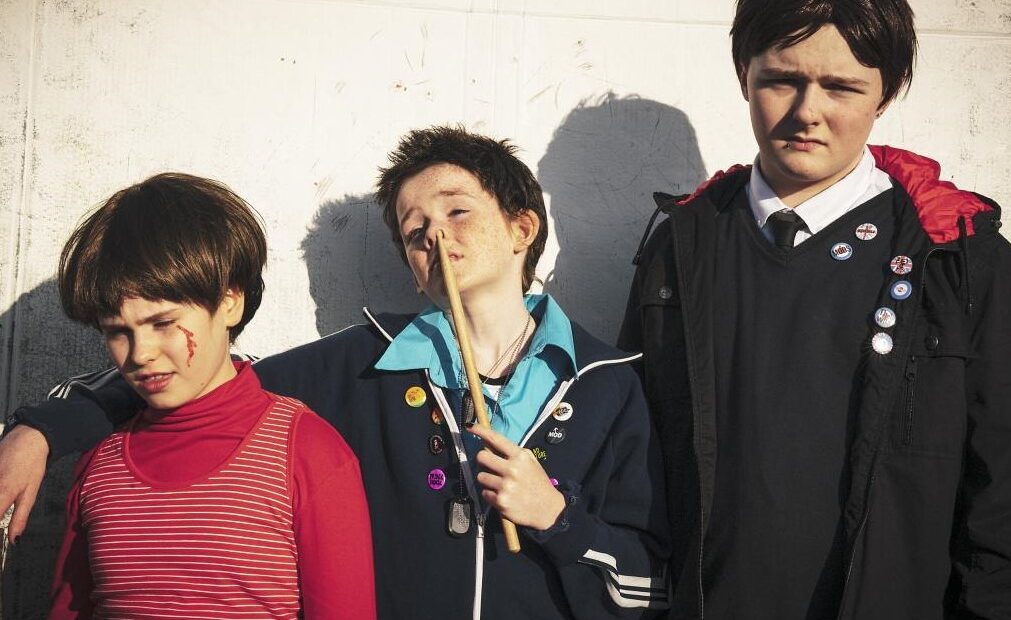Sound for the Future

Online on BFI Player from 10th October 2020 8.30pm until 13th October 2020 8.30pm
“E is for everything”, recites musician-turned-filmmaker Matt Hulse in an alphabet-book voiceover. And that’s certainly what Sound for the Future gives us. The feature, an attempted reconstruction of his formative years in Britain’s youngest punk band, The Hippies, is a synthesis of sound that lacks fine-tuning. Like the guitar distortion that vibrates through the opening shot, it’s so filled with interference that one can’t quite make out any discernible notes.
Naturally, punk music isn’t aiming for neat melodies that tie up nicely; it’s about anarchy and subversion. But while resisting structures can be liberating, as viewers – and listeners – it’s something of a struggle to absorb noise for an hour and a half without getting a headache. It’s all very well the director wanting to create a fragmented impression of his childhood from disjointed memories, but like a scrapbook or an unedited family photo album, though we can appreciate the nostalgia, it’s too introspective to be accessible.
It’s a shame, because the band itself, made up of Hulse and his two siblings, is easily intriguing enough to be a worthy subject. The unexpectedly forthright lyrics of 1979 song Rabies, paired with the idea of drum kits made out of chopsticks and carboard boxes, paints a vivid portrait of youthful imagination. Indeed, it’s this unadulterated innocence that gives rise to some genuine moments of humour in the documentary, and the best decision Hulse makes is to cast young children. Though the kids are constantly being told to pretend, their spontaneous reactions bring moments of surprising authenticity, while segments with the actual family and friends feel strangely contrived and self-indulgent. Admittedly, Hulse wears his narcissism quite literally across his chest, but the irony doesn’t quite validate his approach.
Stylistically, the feature confounds. As well as the reconstructions, there are undeveloped digressions at every turn: from surreal Monty Python-esque pointing fingers, doodles and collages to bizarre shots of Hulse getting tattoos and snogging statues. On top of this, there are random interviews and attempts to explore disparate threads such as feminism and Thatcher alongside the band’s musical influences. All of these themes have the potential to be interesting, enlightening even, but without sufficient context, it feels like being plonked into someone else’s incomprehensible dream.
Sound for the Future is a frustrating feature that takes an interesting musical origin story and turns it into something that feels impenetrable to those not in the filmmaker’s immediate entourage.
Rosamund Kelby
Sound for the Future does not have a UK release date yet.
Read more reviews and interviews from our London Film Festival 2020 coverage here.
For further information about the festival visit the official BFI website here.
Watch the trailer for Sound for the Future here:

























Facebook
Twitter
Instagram
YouTube
RSS